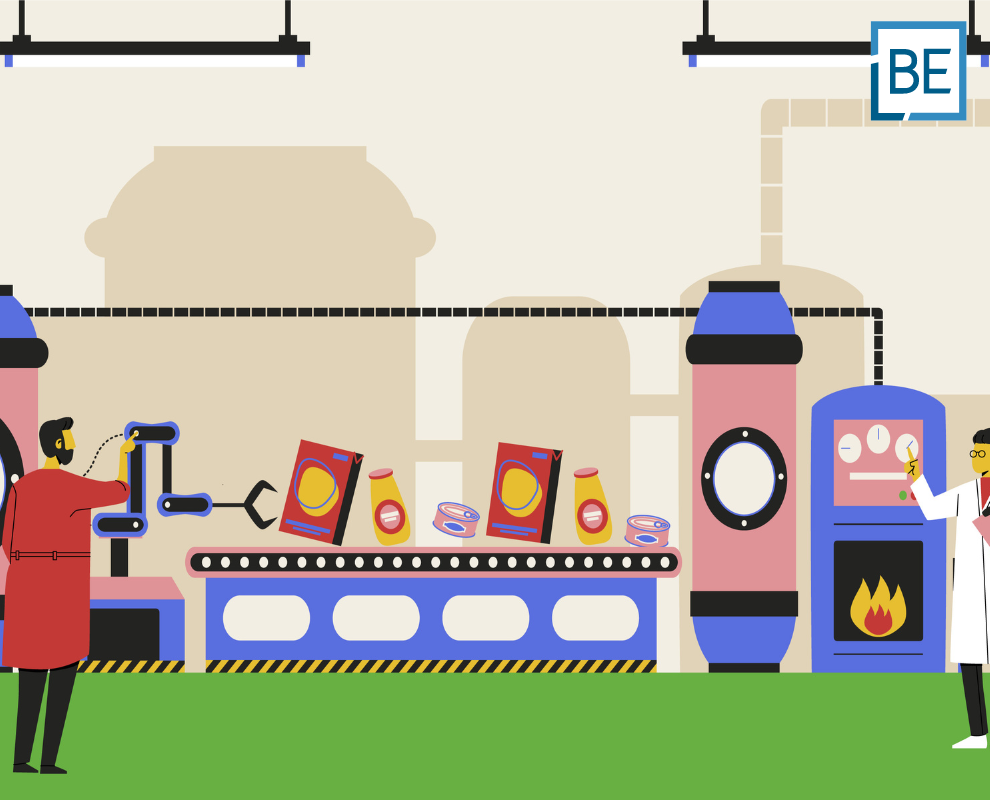Belaws Home ›› Thailand ›› Blog ›› How to Start a Food and Beverage Company in Thailand
incorporation
How to Start a Food and Beverage Company in Thailand
19/01/2024
Thailand has earned the moniker “the kitchen of the world,” and offers a wealth of opportunities for those looking to start a food and beverage company. With its ease of access to natural resources, skilled workforce, and thriving culinary landscape, Thailand is an ideal destination for entrepreneurs and investors.
In this blog post, we will explore the process of how to start a food and beverage company in Thailand.
Key points
- Thailand offers opportunities in the food and beverage business due to growing incomes, tourism, and access to ingredients.
- BOI promotions allow 100% foreign ownership and tax benefits for food companies using modern technology.
- Non-BOI food and beverage companies must have majority Thai shareholders.
- Food companies need licences from the Thai FDA or Consumer Protection Board.
- Additional permits like factory or brewery licences may be required depending on the business.
Food and beverage industry in Thailand, what are the Opportunities?
Thailand’s food and beverage industry offers a wide range of opportunities for international companies. With the growing disposable income, ease of access to raw materials and ingredients and world renowned food and dishes, Thailand is an exciting spot for any food and drink related business. Additionally, the popularity of the country with international tourists further contributes to the demand for a variety of food and beverage products.
Are there any BOI Promotions for Food and Beverage Businesses in Thailand?
Applying for a Board of Investment (BOI) promotion in Thailand is a strategic move for foreigners looking to establish a business in the country. Companies approved for a BOI promotion can take advantage of a range of special incentives and benefits to help their businesses.
By securing a BOI promotion, businesses can enjoy a competitive edge through 100% foreign ownership, and simplified procedures for obtaining visas and work permits.
Eligible activities for a BOI promotion include:
Manufacture or preservation of food, beverages, food additives or food ingredients using modern technology
Companies that take advantage of modern technology in food manufacturing and processing will be eligible for a BOI promotion. An example of such technology would be through the use of automated and advanced processing equipment in the production of packaged foods.
The following products will not be eligible for a BOI promotion under this category:
- drinking water,
- ice cream,
- candy,
- chocolate,
- gum,
- Sugar,
- carbonated soft drinks,
- alcoholic beverages,
- caffeinated beverages,
- flour or starch made from plants,
- bakery products,
- instant noodles,
- essence of chicken and
- bird’s nest.
Manufacturing of food with health claims
Such products must be assessed and undertake a qualified health claim assessment by The Food and Drug Administration or other agencies with internationally accepted standards. This qualification must be completed before the full operation deadline.
Manufacturing of novel food
Novel food is a type of food that does not have a history of being eaten or has been produced using a method that has never been used for food before. Eligible products must be registered as “novel food” with The Food and Drug Administration or other agencies with internationally accepted standards. The registration must be completed before the full operation deadline.
Manufacturing of organic food
Eligible projects must be certified by a recognised international organic agriculture body, such as International Federation of Organic Agriculture Movements (IFOAM), Canada Organic Regime (COR), The National Organic Program (NOP) or an equivalent international standard.
The certification must be completed before the full operation deadline.
Manufacturing of Medical Food
Products must be registered as “medical food” with the Food and Drug Administration or other agencies with internationally accepted standards prior to the full operation start-up date.
The following products are exempt from the manufacturing of food with health claim, manufacturing of novel food, manufacturing of organic foods and manufacturing of medical food categories.
- Manufacture of sugar,
- sport drinks,
- Diluted juices,
- energy drinks,
- alcoholic beverages,
- drinking water,
- flavoured and non-flavoured soda,
- carbonated beverages,
- vitamin water and
- Flavoured drinking water.
Benefits awarded by the BOI for food and beverage promotions:
- 100% foreign ownership of a company
- Ability to undertake restricted business activities
- Freedom to hire foreign skilled experts
- Streamlined visa and work permit Applications
Tax Benefits available:
- Corporate income tax (CIT) exemption up to 13 years
- 50% reduction in corporate income tax after expiry of the tax exemption period
- Exemption of import duties on machinery
- Exemption of import duties on raw materials (used in the manufacture of exports and for R&D purposes)
Can Non-BOI Promoted Food and Beverage Companies be 100% Foreign Owned?
If a food and/or beverage company is not eligible for a BOI promotion, in practice, it is not possible for such a business to be 100% foreign owned. This is due to the restrictions of the Foreign Business Act which restricts foreigners from undertaking about 50 types of business. Food and Beverage businesses are restricted to foreign owners due to the industry being designated as an area where “Thai nationals are not ready to compete” with foreigners.
Therefore, with the restrictions of the Foreign Business Act, food and beverage businesses can only be undertaken by a Thai company (a company registered in Thailand with Thai shareholder(s) owning more than 50% of the share capital). A private limited company is the most common business type for a spa or massage business.
The requirement for opening a Thai Limited Company are as follows:
- 2 shareholders
- One or more directors
- 50,000 THB minimum capital (2M THB if you want to have a work permit for a foreign employee )
- A registered corporate address in Thailand
What are the Legal Regulations and Requirements for Food and/or Beverage Companies?
To start a food and beverage company in Thailand, it is important to be aware of the legal regulations and requirements. The Food Act of 1979 states that no food production facility can operate without a licence from the relevant authorities.
The Food Act describes food as being an edible item and those which sustain life:
- Substance can be eaten, drunk, sucked or gotten into the body either by mouth or by other means, no matter in what form, but not including medicine, psychotropic substances, narcotic under the law as the case may be.
- Substance intended for use or to be used as ingredients in the production or food including food additive, colouring and flavouring.
For licensing purposes, the food act splits the different food types into 3 main categories:
Specially controlled foods:
Foods that qualify under this category require registration with Thailand’s Food and Drug Administration (FDA). This is required by the FDA in order to maintain standards of quality, specifications, packaging and labelling requirements, as well as other aspects of good manufacturing practice.
Standard Foods
Standard foods do not require product registration; however, the quality and standards of the products are still required to meet the specific requirement established by the Food and Drug Administration.
Other Food products
Food products which fall under this category do not need to be registered with the FDA, however, they are required to meet standards relating to hygiene, labelling and advertising. Foods in this category have been further divided into:
a) Foods required to have standardised labels
b) Other general food types
What is the Application Process for a Food Licence?
The application for a food production licence must be submitted to either the Thai Food and Drug Administration or the Thai Consumer Protection Board. The application includes the submission of relevant documents such as the company’s identification documents and the master plan of the food production site.
The food and beverage production site must also satisfy specific regulations regarding its:
- location,
- factory building quality,
- layout,
- fuel handling,
- water management,
- waste disposal
What Additional Licences and Permits may be Required?
Depending on the type of food and beverage company you intend to start in Thailand, you may require additional licences and permits. For instance, if you plan to establish a food and beverage manufacturing company, you will need to obtain a Factory Licence. Similarly, starting a brewery necessitates applying for a Brewery License.
How can Belaws help?
For more information about setting up a food or beverage company in Thailand, why not talk to one of our experts now?
Please note that this article is for information purposes only and does not constitute legal advice.
Our consultations last for a period of up to 1 hour and are conducted by expert Lawyers who are fluent in English, French and Thai.
Consultations can be hosted via WhatsApp or Video Conferencing software for your convenience. A consultation with one of our legal experts is undoubtedly the best way to get all the information you need and answer any questions you may have about your new business or project.
USD 150
Up to 1 hour
Online payment (Paypal or Credit card)
Legal consultation can be conducted in English, French or Thai
Legal consultations are handled by experienced lawyers from the relevant fields of practice
Frequently asked questions
Why is Thailand a good place to start a food and beverage business?
Thailand offers a thriving culinary scene, access to ingredients, and growing tourist numbers, making it an attractive location for F&B businesses.
What are the benefits of getting BOI promotion for my food and beverage business?
BOI promotions offer foreign ownership, visa and work permit advantages, and tax benefits like exemption from import duties and corporate income tax.
Can a food and beverage company in Thailand be 100% foreign-owned?
Generally, no. Non-BOI promoted companies require majority Thai shareholders due to Foreign Business Act restrictions.
What are the legal requirements for starting a food and beverage company in Thailand?
You’ll need a Thai limited company with at least 2 shareholders, a director, and a minimum capital of 50,000 THB (2 million THB for work permits). Additionally, you’ll need a food license from the Thai FDA or Consumer Protection Board.
What types of food licenses are there in Thailand?
There are three main categories:
- Specially controlled foods (require FDA registration)
- Standard foods (meet FDA quality standards)
- Other food products (meet hygiene, labeling, and advertising standards)
What additional permits might I need?
Depending on your business, you may need a Factory License (manufacturing) or a Brewery License (brewery).
Related articles
Subscribe today
Subscribe today
To our newsletter for all the latest legal news
in South East Asia, Belaws updates and
special promotions on our services.
To our newsletter today for all the latest legal news in South East Asia,
Belaws updates and special promotions on our services.







